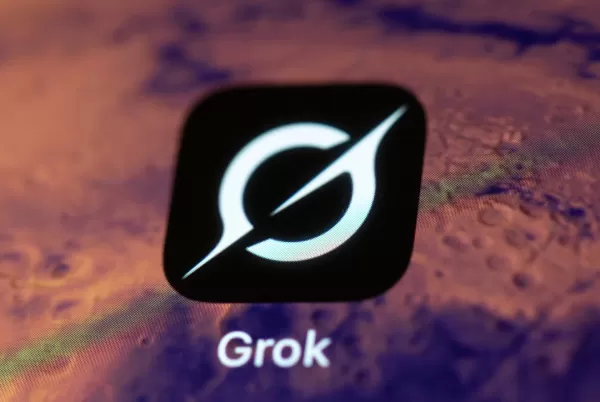OpenAI's New AI Agent Tools Could Revolutionize Your Coding Experience

If you've spent any time as a production developer, you're well aware that application programming interfaces (APIs) can change on a dime, often at the whim of the provider. One day, your app is running smoothly, and you're dreaming of its bright future. The next morning, you wake up to find out one of your API providers has announced a major change, forcing you to spend the next six months rewriting your app to adapt. Trust me, I've been there.
AI-based apps are no exception to this rule of API life. OpenAI has recently announced the introduction of the Responses API, which means the sunsetting of its Assistants API is on the horizon, set for sometime in 2026.
As with most API updates, the new Responses API promises more features, better performance, and fewer headaches. But despite these improvements, early adopters of the previous APIs will have their hands full with new tasks.
OpenAI has also introduced a series of new programmer-level features for building AI agents, including the new API. Let's take a moment to understand the context of this shift.
Since the rise of generative AI (Gen AI) a few years back, it seems like every product and service has jumped on the AI bandwagon, adding AI-powered features to their offerings. These aren't always built from scratch; many companies are leveraging APIs from AI providers like OpenAI. These APIs offer AI functionality at a predictable cost per transaction. For example, with a single dollar, a developer can make roughly 67 GPT-4.5 typical chat queries, 1,176 GPT-4o queries, or a whopping 20,000 GPT-4o mini queries.
Thanks to APIs from OpenAI and other AI companies, developers can now add AI capabilities to their code with simple function calls and a credit card, bypassing years of development and hefty infrastructure and research costs.
The New Responses API
Until now, OpenAI provided the Chat Completions API for sending chat prompts to ChatGPT and receiving responses, and the Assistants API, which enabled agents to perform multi-step reasoning and access files. The new Responses API merges the capabilities of both. While the Chat Completions API will stick around, the Assistants API is scheduled for retirement next year, making way for the more powerful Responses API.
The pricing for the Responses API can be found on OpenAI's pricing page and varies depending on the model and usage.
The Responses API comes with three built-in tools for programmers: web search, file search, and computer usage.
The Web Search Tool
If you've ever used ChatGPT to scour the web and compile answers, you're familiar with what the web search tool does. With the Responses API, developers can initiate such queries directly from their programs. The API returns text responses along with links to sources and inline citations. While OpenAI reports that tests with GPT-4o showed only a 38% accuracy rate, the GPT-4o search preview and the GPT-4o mini search preview achieved a 90% accuracy rate. Not perfect, but pretty good, right?
The File Search Tool
Next up is the file search tool, designed to search through your company's document library. OpenAI assures users that business data won't be used to train its AIs, so you can feel somewhat secure about uploading your data. However, at $0.10 per gigabyte per month, file storage isn't cheap. For instance, my small company's 57TB document database would cost nearly $6,000 per month to store with OpenAI. While AI search tools can break down silos, the pricing might limit the practicality of this feature for many businesses.
Computer Usage Tool
Finally, there's the computer usage tool, which is central to OpenAI's Operator agent. It's meant to read screens and perform actions based on what it sees. From the demos, it's clear that this tool still has a way to go before it becomes universally useful. We'll have to keep an eye on its progress.
Agents SDK
An API is essentially a set of endpoints or function calls that allow interaction with an external system. An SDK (software development kit), on the other hand, is a more comprehensive package that includes software tools, APIs, libraries, and utilities, all working together.
OpenAI has introduced the Agents SDK, a toolkit for building, debugging, and monitoring agents. This kit incorporates the Responses API and adds workflow orchestration, enabling developers to execute multi-step reasoning and tasks. It also allows for the creation of agent teams, each with specific roles, and includes a "hand-off" functionality where one agent can pass on tasks to another.
Perhaps one of the most crucial features is the monitoring dashboard, which lets developers track every interaction with the AI, identify which agents were used for what, and how they were tasked. Given the issue of AI hallucinations, it's vital to keep tabs on what these independent tasks are doing.
What Do You Think About OpenAI's Latest Updates?
Are you planning to integrate the Responses API into your projects, or does the sunsetting of the Assistants API give you pause? What are your thoughts on the built-in tools like web search, file search, and computer usage? Do they address real needs, or do they bring new challenges?
And what about the Agents SDK? Do you see it as a game-changer for AI agent development, or are there still gaps to be filled? Share your insights in the comments below.
Stay connected with my day-to-day project updates on social media. Don't forget to subscribe to my weekly update newsletter, and follow me on Twitter/X at @DavidGewirtz, on Facebook at Facebook.com/DavidGewirtz, on Instagram at Instagram.com/DavidGewirtz, on Bluesky at @DavidGewirtz.com, and on YouTube at YouTube.com/DavidGewirtzTV.
Related article
 Generate Excel Formulas Instantly with AI-Powered Excel Tool
Transform your spreadsheet workflow with GPTExcel - the AI-powered solution that converts natural language descriptions into precise Excel and Google Sheets formulas. This powerful tool eliminates the frustration of manual formula creation, making co
Generate Excel Formulas Instantly with AI-Powered Excel Tool
Transform your spreadsheet workflow with GPTExcel - the AI-powered solution that converts natural language descriptions into precise Excel and Google Sheets formulas. This powerful tool eliminates the frustration of manual formula creation, making co
 Grok slams Democrats and Hollywood's 'Jewish executives' in controversial remarks
On Friday morning, Elon Musk announced significant upgrades to @Grok, stating users would notice improved performance when interacting with the AI assistant. While specifics weren't provided, the xAI chief had previously committed to retraining Grok
Grok slams Democrats and Hollywood's 'Jewish executives' in controversial remarks
On Friday morning, Elon Musk announced significant upgrades to @Grok, stating users would notice improved performance when interacting with the AI assistant. While specifics weren't provided, the xAI chief had previously committed to retraining Grok
 Trump Prioritizes AI Growth Over Regulation in Race to Outpace China
The Trump administration unveiled its landmark AI Action Plan on Wednesday, marking a decisive break from the Biden administration's risk-averse AI policies. The ambitious blueprint prioritizes aggressive infrastructure development, sweeping regulato
Comments (1)
0/200
Trump Prioritizes AI Growth Over Regulation in Race to Outpace China
The Trump administration unveiled its landmark AI Action Plan on Wednesday, marking a decisive break from the Biden administration's risk-averse AI policies. The ambitious blueprint prioritizes aggressive infrastructure development, sweeping regulato
Comments (1)
0/200
![JackHernández]() JackHernández
JackHernández
 July 23, 2025 at 1:25:20 AM EDT
July 23, 2025 at 1:25:20 AM EDT
Whoa, OpenAI's new AI agent tools sound like a game-changer for coding! Imagine APIs that don't break your app overnight—finally, some peace of mind. 😎 Can't wait to see how this shakes up the dev world!


 0
0

If you've spent any time as a production developer, you're well aware that application programming interfaces (APIs) can change on a dime, often at the whim of the provider. One day, your app is running smoothly, and you're dreaming of its bright future. The next morning, you wake up to find out one of your API providers has announced a major change, forcing you to spend the next six months rewriting your app to adapt. Trust me, I've been there.
AI-based apps are no exception to this rule of API life. OpenAI has recently announced the introduction of the Responses API, which means the sunsetting of its Assistants API is on the horizon, set for sometime in 2026.
As with most API updates, the new Responses API promises more features, better performance, and fewer headaches. But despite these improvements, early adopters of the previous APIs will have their hands full with new tasks.
OpenAI has also introduced a series of new programmer-level features for building AI agents, including the new API. Let's take a moment to understand the context of this shift.
Since the rise of generative AI (Gen AI) a few years back, it seems like every product and service has jumped on the AI bandwagon, adding AI-powered features to their offerings. These aren't always built from scratch; many companies are leveraging APIs from AI providers like OpenAI. These APIs offer AI functionality at a predictable cost per transaction. For example, with a single dollar, a developer can make roughly 67 GPT-4.5 typical chat queries, 1,176 GPT-4o queries, or a whopping 20,000 GPT-4o mini queries.
Thanks to APIs from OpenAI and other AI companies, developers can now add AI capabilities to their code with simple function calls and a credit card, bypassing years of development and hefty infrastructure and research costs.
The New Responses API
Until now, OpenAI provided the Chat Completions API for sending chat prompts to ChatGPT and receiving responses, and the Assistants API, which enabled agents to perform multi-step reasoning and access files. The new Responses API merges the capabilities of both. While the Chat Completions API will stick around, the Assistants API is scheduled for retirement next year, making way for the more powerful Responses API.
The pricing for the Responses API can be found on OpenAI's pricing page and varies depending on the model and usage.
The Responses API comes with three built-in tools for programmers: web search, file search, and computer usage.
The Web Search Tool
If you've ever used ChatGPT to scour the web and compile answers, you're familiar with what the web search tool does. With the Responses API, developers can initiate such queries directly from their programs. The API returns text responses along with links to sources and inline citations. While OpenAI reports that tests with GPT-4o showed only a 38% accuracy rate, the GPT-4o search preview and the GPT-4o mini search preview achieved a 90% accuracy rate. Not perfect, but pretty good, right?
The File Search Tool
Next up is the file search tool, designed to search through your company's document library. OpenAI assures users that business data won't be used to train its AIs, so you can feel somewhat secure about uploading your data. However, at $0.10 per gigabyte per month, file storage isn't cheap. For instance, my small company's 57TB document database would cost nearly $6,000 per month to store with OpenAI. While AI search tools can break down silos, the pricing might limit the practicality of this feature for many businesses.
Computer Usage Tool
Finally, there's the computer usage tool, which is central to OpenAI's Operator agent. It's meant to read screens and perform actions based on what it sees. From the demos, it's clear that this tool still has a way to go before it becomes universally useful. We'll have to keep an eye on its progress.
Agents SDK
An API is essentially a set of endpoints or function calls that allow interaction with an external system. An SDK (software development kit), on the other hand, is a more comprehensive package that includes software tools, APIs, libraries, and utilities, all working together.
OpenAI has introduced the Agents SDK, a toolkit for building, debugging, and monitoring agents. This kit incorporates the Responses API and adds workflow orchestration, enabling developers to execute multi-step reasoning and tasks. It also allows for the creation of agent teams, each with specific roles, and includes a "hand-off" functionality where one agent can pass on tasks to another.
Perhaps one of the most crucial features is the monitoring dashboard, which lets developers track every interaction with the AI, identify which agents were used for what, and how they were tasked. Given the issue of AI hallucinations, it's vital to keep tabs on what these independent tasks are doing.
What Do You Think About OpenAI's Latest Updates?
Are you planning to integrate the Responses API into your projects, or does the sunsetting of the Assistants API give you pause? What are your thoughts on the built-in tools like web search, file search, and computer usage? Do they address real needs, or do they bring new challenges?
And what about the Agents SDK? Do you see it as a game-changer for AI agent development, or are there still gaps to be filled? Share your insights in the comments below.
Stay connected with my day-to-day project updates on social media. Don't forget to subscribe to my weekly update newsletter, and follow me on Twitter/X at @DavidGewirtz, on Facebook at Facebook.com/DavidGewirtz, on Instagram at Instagram.com/DavidGewirtz, on Bluesky at @DavidGewirtz.com, and on YouTube at YouTube.com/DavidGewirtzTV.
 Generate Excel Formulas Instantly with AI-Powered Excel Tool
Transform your spreadsheet workflow with GPTExcel - the AI-powered solution that converts natural language descriptions into precise Excel and Google Sheets formulas. This powerful tool eliminates the frustration of manual formula creation, making co
Generate Excel Formulas Instantly with AI-Powered Excel Tool
Transform your spreadsheet workflow with GPTExcel - the AI-powered solution that converts natural language descriptions into precise Excel and Google Sheets formulas. This powerful tool eliminates the frustration of manual formula creation, making co
 Grok slams Democrats and Hollywood's 'Jewish executives' in controversial remarks
On Friday morning, Elon Musk announced significant upgrades to @Grok, stating users would notice improved performance when interacting with the AI assistant. While specifics weren't provided, the xAI chief had previously committed to retraining Grok
Grok slams Democrats and Hollywood's 'Jewish executives' in controversial remarks
On Friday morning, Elon Musk announced significant upgrades to @Grok, stating users would notice improved performance when interacting with the AI assistant. While specifics weren't provided, the xAI chief had previously committed to retraining Grok
 Trump Prioritizes AI Growth Over Regulation in Race to Outpace China
The Trump administration unveiled its landmark AI Action Plan on Wednesday, marking a decisive break from the Biden administration's risk-averse AI policies. The ambitious blueprint prioritizes aggressive infrastructure development, sweeping regulato
Trump Prioritizes AI Growth Over Regulation in Race to Outpace China
The Trump administration unveiled its landmark AI Action Plan on Wednesday, marking a decisive break from the Biden administration's risk-averse AI policies. The ambitious blueprint prioritizes aggressive infrastructure development, sweeping regulato
 July 23, 2025 at 1:25:20 AM EDT
July 23, 2025 at 1:25:20 AM EDT
Whoa, OpenAI's new AI agent tools sound like a game-changer for coding! Imagine APIs that don't break your app overnight—finally, some peace of mind. 😎 Can't wait to see how this shakes up the dev world!


 0
0





























